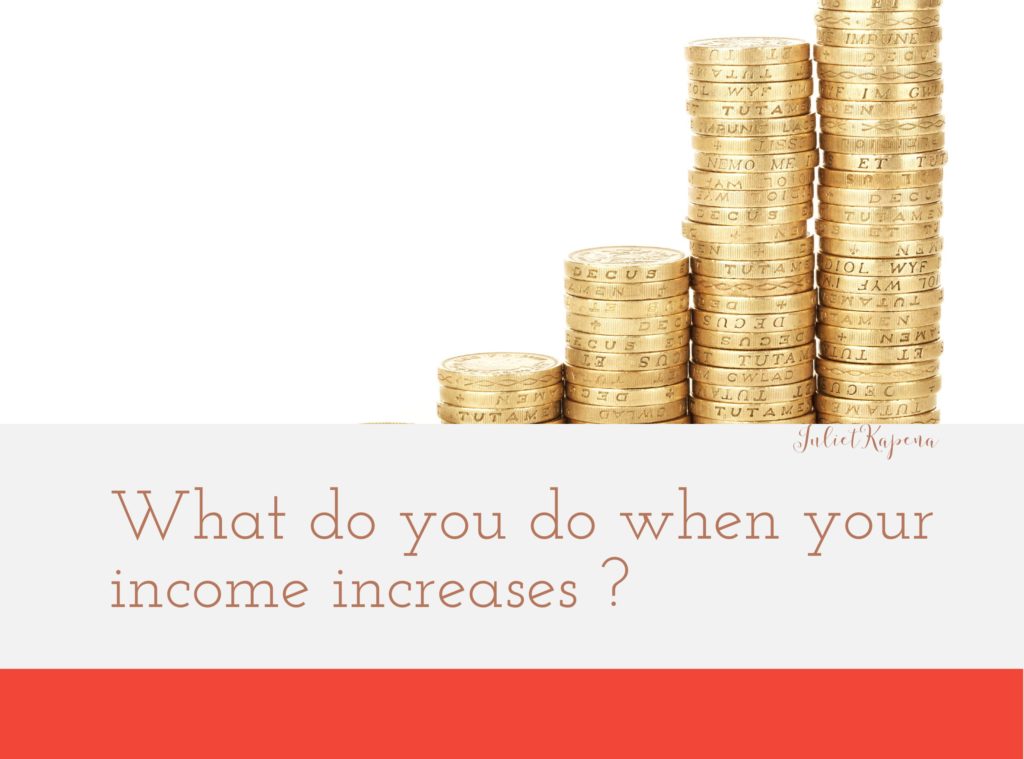
As Charles A. Jaffe famously said, “It’s not your salary that makes you rich, it’s your spending habits.”
When you get a raise, you may be tempted to start indulging a bit more. Before you start upgrading to a fancy £5 coffee cup from your current £1 morning beverage, think about your goals and consider your financial journey.
Here are 5 points to consider when your income increases :
Increase your contributions to your savings/retirement plans or investments.
Don’t fall into the trap of upgrading everything else such as your phone or your car before even thinking about your savings account or investments. Upgrading and increasing your contributions into your savings should be priority.
Keep your current expense levels.
Quite a number of people make this mistake. Increasing your recurring expenses after a rise in income keeps you at the same level as you were before the raise. The smart thing to do would be to maintain your current expense levels in order to maximize the extra income.
Pay off as much debt as you can.
Don’t continue to pay the bare minimum of debts. If you continue paying only the minimum monthly payment repayment, it will take you much longer to pay off the debt. On the other hand, if you were to put away slightly more every month, you would pay off the balance very quickly. This reduces the amount of interest you pay overtime and translates to more savings in your pocket! Take advantage of your raise and bump up your monthly debt payments.
Contribute to your emergency fund.
Only a few meet the recommended three to six months savings for rainy days. To become part of this group, you need to start building up your emergency fund.
Check your tax bracket .
Boost your retirement savings. If your tax bracket increases due to a raise or a rise in income , one of the best ways to lower it back down is by increasing your pension contribution. Money contributed to a retirement plan is not included in your taxable income. If your employer offers you a 401(k) account/ pension fund, use it – the contributions will typically come out of pre-tax income, so they automatically lower your taxable income without any extra work required on your part. No pension fund available? No problem. Practically any bank or brokerage firm will happily set up a personal retirement plan for you, often with low or no fees.
If you are in need of a personal retirement plan , please get in touch with me and I will be happy to help.
Lovely, thanks for sharing .